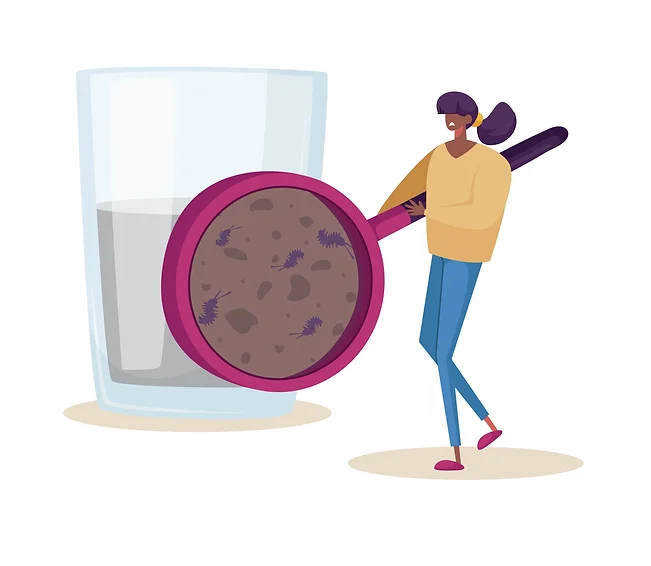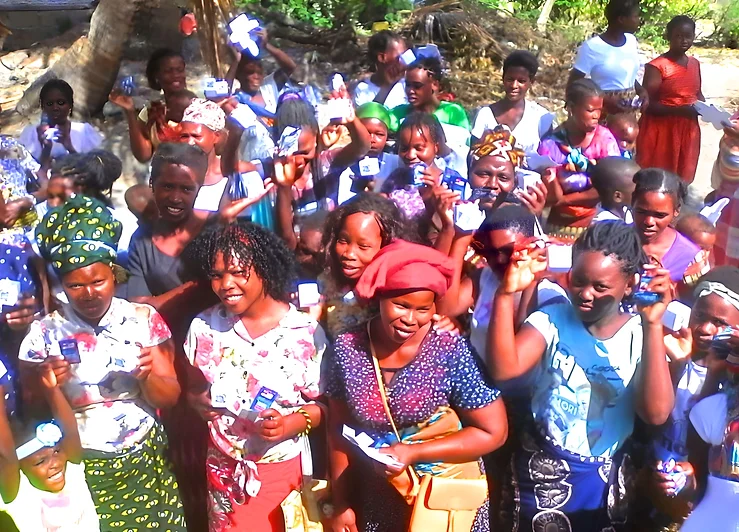SANIAMANZI™
Addressing Mozambique's
Water Crisis
Mozambique, located along the southeastern coast of Africa, is a country of remarkable natural beauty and cultural diversity. With a population of approximately 28 million people, Mozambique is home to a tapestry of ethnic groups, each with its own rich traditions and heritage. However, amidst its stunning landscapes and vibrant communities, Mozambique faces a significant challenge—the clean water crisis.
The clean water crisis in Mozambique is a pressing issue that affects millions of people across the country. Due to a weak economy and limited development, access to clean and safe drinking water remains elusive for a large portion of the population. Over 14 million Mozambicans, more than half of the country’s inhabitants, lack reliable access to clean water sources.
The most heavily impacted by this crisis are the rural areas of Mozambique. In these regions, infrastructure for clean water supply and sanitation services is often lacking or inadequate. As a result, communities are forced to rely on natural water sources such as ponds, rivers, and hand-dug wells, which are frequently contaminated and unsafe for drinking. This dire situation exposes people, especially women and children, to waterborne diseases, including dangerous diarrheal illnesses.
The Challenge
Mozambique finds itself at a critical juncture, with over half of its population, a staggering 14 million people, still lacking access to clean water. Moreover, an alarming three out of four individuals endure the absence of decent sanitation facilities.
The consequences of this water crisis are dire, with waterborne diseases wreaking havoc on communities. Here are some of the challenges faced:
Limited Infrastructure: Rural communities often lack adequate infrastructure for clean water supply systems. The absence of pipelines, water treatment plants, and storage facilities makes it difficult to provide safe and reliable drinking water to these communities.
Distance and Accessibility: Many rural communities are located in remote areas, far from urban centers and water sources. The long distances people must travel to reach clean water points, such as boreholes or protected wells, pose significant challenges, particularly for women and children who are primarily responsible for water collection.

Contaminated Water Sources: In the absence of proper water infrastructure, rural communities often rely on natural water sources, such as rivers, ponds, and hand-dug wells. However, these sources are frequently contaminated with pollutants, bacteria, and parasites, making the water unsafe for consumption and increasing the risk of waterborne diseases.
Climate Change and Drought: Mozambique is susceptible to the impacts of climate change, including prolonged droughts. Reduced rainfall and depleted water sources further strain access to clean drinking water in rural areas, leaving communities vulnerable to water scarcity and forcing them to rely on inadequate or contaminated water sources.
Intervention & Transformation
To combat the clean water crisis in Mozambique, a significant milestone was achieved by Scientific Sanitation Solutions. Over 100,000 SANI AMANZI™ sachets were distributed throughout the country over a 3 week period, making a tangible impact on water sanitation. This distribution effort resulted in the purification of a remarkable 2 million litres of contaminated water at the source and in the areas where it was most urgently needed.
This achievement would not have been possible without the remarkable efforts of numerous NGOs dedicated to saving lives and improving water security in Mozambique. Their unwavering commitment and tireless work in distributing SANI AMANZI™ sachets have made a significant difference in the lives of countless individuals and communities.
By leveraging the innovative SANI AMANZI™ solution, these NGOs have directly addressed the challenges faced by rural communities in accessing clean drinking water. The sachets’ effective water sanitisation properties have transformed contaminated water sources into safe and reliable drinking water, mitigating the risk of waterborne diseases and improving overall health outcomes.

The collective efforts of these NGOs, working in collaboration with local communities, demonstrate the power of partnerships and the potential for scalable impact. By combining resources, expertise, and dedication, they are actively contributing to the goal of ensuring access to clean and safe drinking water for all Mozambicans.
As we express our gratitude to these incredible NGOs, we recognise that their work is an ongoing endeavor. Their commitment to saving lives and transforming communities through SANI AMANZI™ continues to make a lasting impact in Mozambique. Together, we can strive for a future where clean water is not a luxury but a fundamental right for every individual.
To learn more about how SANI AMANZI™ water sanitiser can revolutionise your water sanitisation practices and enhance hygiene, please feel free to contact us. Our dedicated team of experts is ready to assist you and provide personalised guidance based on your specific needs and requirements. We can offer detailed insights into the benefits, application methods, and technical specifications of SANI AMANZI™.
To gain further insights into the solution, we invite you to download our brochure. Don’t miss out on the opportunity to transform your water sanitisation processes with SANI AMANZI™. Contact us today and take a step towards cleaner, safer, and healthier water sources.
